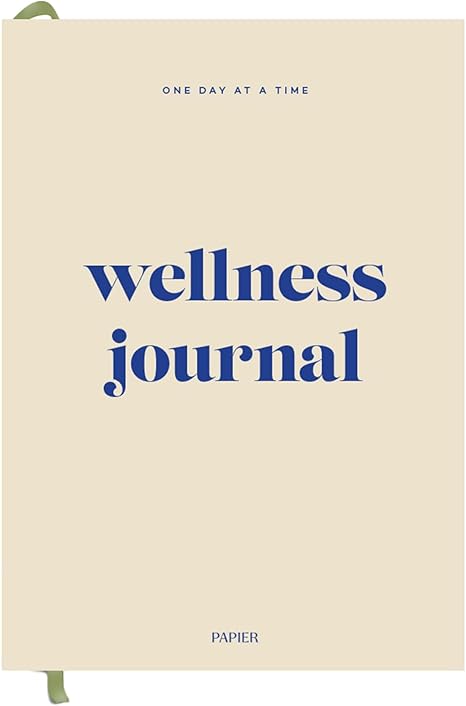Do you often ask yourself, Why don’t I feel good about myself? Why do I feel unsure about my own abilities?? You see others thriving with self-confidence and assertiveness, and this is when you get into the loop of disliking yourself even more.
Whether it’s a tough situation where you must compete or a rewarding episode where you have achieved a milestone, you struggle to get comfortable in your skin.
You often experience feelings of inadequacy and don’t know how to feel accomplished and joyful in life, no matter what you do. On top of it, you feel chained in the thoughts of inferiority and self-doubt.
If this reflects your inner experience, it could be a sign of low self-esteem.
Low self-esteem can be a major roadblock in your path to success. In addition to preventing you from pursuing your dreams, it can become a great barrier to expressing your thoughts. On the extreme end, it can even become an obstacle to forming meaningful connections with others.
If you resonate with these signs and are looking for ways to break free from this cycle, stick around as we offer practical strategies to improve your self-esteem.
Before we begin, let’s understand what self-esteem is.
What is Self-esteem?
Self-esteem is your image of yourself. It is dependent on what you think and feel about yourself. When you feel good about yourself and often see yourself in a positive light, you will have high self-esteem. When you remain critical of yourself and often undermine your caliber and abilities, you will develop low self-esteem.
Our self-esteem is often a result of our childhood experiences, external influences, and societal expectations. When we learn to speak to ourselves in a manner that any warm-hearted person would speak, we often become soft and considerate towards ourselves. And when we subconsciously learn to remain critical of ourselves (often in an attempt to better our actions and conduct), we move towards building low self-esteem.
We may not realize the dangers of developing low self-esteem until we become victims of low confidence and unhealthy relationships. We may get tricked into thinking that being critical of ourselves is the only way to regulate our actions and behaviors. Little do we realize that by being critical and unappreciative of ourselves, we are hindering our own progress.
Ways to Improve Self-esteem
In our general understanding, we think the best way to conduct ourselves is to remain critical and overly strict. But this isn’t how it works.
Like any other strict parent who deprives their child of gentle behavior and appreciation, we become cold critics of our inner child. This creates a rift within ourselves, and we struggle to feel comfortable in our own skin.
Ways in which you can practically boost your self-esteem:
#1: Positive Self-Talk:
One of the easiest and most effective ways to improve your self-esteem is to focus on your inner dialog. How critical are you being of yourself? Are you giving yourself the room to make mistakes? Are you bulldozing yourself into doing things you don’t want to do? If yes, don’t be taken aback by your behavior. It is generally the result of subconscious programming that happened on its own while you were a kid.
To reverse this mental setting, try to engage in positive self-talk. Whenever you are in a tough situation, try to come across as a motivating force (through the medium of your inner voice) instead of ridiculing or judging your imperfect actions. This will help you become your own support and change the internal dialog for the better.
👉 Pro Tip
Start each day with a positive affirmation. Look in the mirror and say, “I am worthy,” or “I believe in myself.” Repeat it several times until it resonates with you.
#2: Surround Yourself with Positive People
When we surround ourselves with positive influences, whether it’s our friends and family that we prefer to fall back on, we naturally develop healthy self-esteem following their positive reviews and feedback.
Studies show that people with strong social support networks have a 50% higher likelihood of experiencing improved self-esteem.
So, whenever you choose to spend time with people who make you feel good about yourself, you naturally boost your self-esteem. If you are unable to find connection with others and feel the need to seek professional assistance, you can even choose to seek therapy to move your mental blocks and thrive in your unique ways.
#3: Identify your Strengths
A great way to improve how you feel about yourself is by identifying your strengths. When we shed a spotlight on our positive points, we give ourselves a fair chance to improve our self-image—an image that we have tarnished in an attempt to be overly critical of ourselves.
👉 Challenge
Create a list of your strengths and qualities that make you unique. Reflect on how these traits have positively impacted your life and the lives of others.
Try to find out areas that you are good at. It could be a skill, a hobby, or a specific trait about yourself. When you do this, you are making a significant shift from ‘nitpicking your faults’ to ‘appreciating your existing qualities.’
It doesn’t mean you must turn a blind eye to your faults and flaws. In fact, it’s about being a little gentle with yourself and making room for constructive criticism.
#4: Learn to Say ‘No’
Do you struggle to say ‘no’ when you want to? If yes, it is a clear sign that you aren’t taking enough stand for yourself. We often avoid setting healthy boundaries, thinking it might offend others. But we forget to take note of the fact that we are the ones who suffer the consequences.
So whenever you catch yourself saying ‘yes’ when you want to say no, understand that it is crucial to choose your authentic response. First, it will keep you from experiencing passive resentment and boost your self-esteem. Second, it will allow you to foster healthier relationships based on honesty and mutual respect.
#5: Prioritize Self-Care
When you critically judge your deeds and actions, it’s unlikely that you truly care about yourself. On becoming too hard on ourselves, we often lose the perspective of empathizing with ourselves. We become too obsessed with bringing our actions close to perfection. We become too busy magnifying our own mistakes and neglecting our strengths.
To flip it to the other side, take very good care of yourself, whether it’s taking a balanced diet or getting enough sleep to wake up refreshed and energized the next morning.
When we indulge in self-care activities, it is a healthy indicator that we are consciously improving our relationship with ourselves. Indulge in physical activities to keep your mind and body healthy.
To make things easier and deepen your practice of self-care, you can also get into the habit of writing a wellness journal.
Quick Tips to Boost Your Self-esteem
- Practice positive self-affirmations. They will boost your confidence and allow you to uplift your self-image, focusing on your strengths and positive attributes.
- Acknowledge your wins, no matter how small they are. This way, you’ll be able to change your notion about yourself from negative to positive.
- Engage in physical activity. It will help you on multiple fronts. First, it will allow you to remain healthy on the part of your body. Second, it will release the feel-good hormones (dopamine) and keep you in a happy mood—enhancing your self-esteem.
- Be kind to yourself. It’s not only the world that needs your empathy and compassion; you are worthy of it as well and should not deprive yourself of it.
- Do not compare yourself with others. Comparing yourself not only puts undue pressure on yourself but also restricts your growth and creativity. Focus solely on your personal journey, and you will notice yourself thriving with a renewed sense of purpose.
- Keep adding to your skills and learning. When you focus completely on building and upgrading yourself, you rarely get into a critical mindset.
Conclusion
Overcoming your limiting thoughts and beliefs might appear difficult at first, but it goes a long way in bringing you the success and happiness you deserve. You can take baby steps towards changing the way you feel. Start by practicing self-compassion, embracing imperfections, and replacing critical judgments with constructive criticism. Also, prioritizing self-care and setting healthy boundaries can help you elevate your self-image.
When you understand the need to be gentle and loving towards yourself, you’ll see the world taking a shift and reality manifesting as you have always wanted it to be.
FAQs
Low self-esteem is often the result of negative experiences early on in life. When we constantly compare ourselves and receive negative feedback about ourselves, we subconsciously make it a way of dealing with ourselves and develop low self-esteem. Low self-esteem is a poor image we have of ourselves following the negative criticism of others.
You can assess your self-esteem by reflecting on your thoughts and feelings about yourself. If you feel good about yourself and do not shy away from relying on your strengths, you have high self-esteem.
On the contrary, if you get offended in small instances and do not feel worthy of good things in life, it is likely a sign of low self-esteem. To get a better view, you may also consider taking self-esteem assessment quizzes available online.
Yes, there are several ways to improve your self-esteem.
Self-esteem is nothing but the image you perceive of yourself. When you take steps like practicing self-care and self-compassion while challenging your negative thoughts, you’ll notice a significant improvement in the way you feel about yourself. This way, you’ll be able to push the negative thoughts and transform them into positive beliefs.
Among the effective ways to boost self-esteem is to engage in positive self-talk, surround yourself with positive influences, prioritize self-care, and identify your strengths. When you change your perception of yourself, you’ll notice a significant shift in how you think and feel about who you are.
There is no fixed time period within which you can improve your self-esteem. It may differ from person to person and depend on how quickly you learn and adapt to new beliefs about yourself.
When you change the way you look at yourself and replace the critical voice with a motivating and affirming inner voice, you quickly shift from feeling underconfident to embracing your true potential and experiencing a newfound sense of self-worth.





















